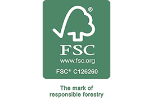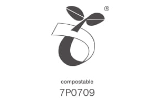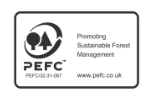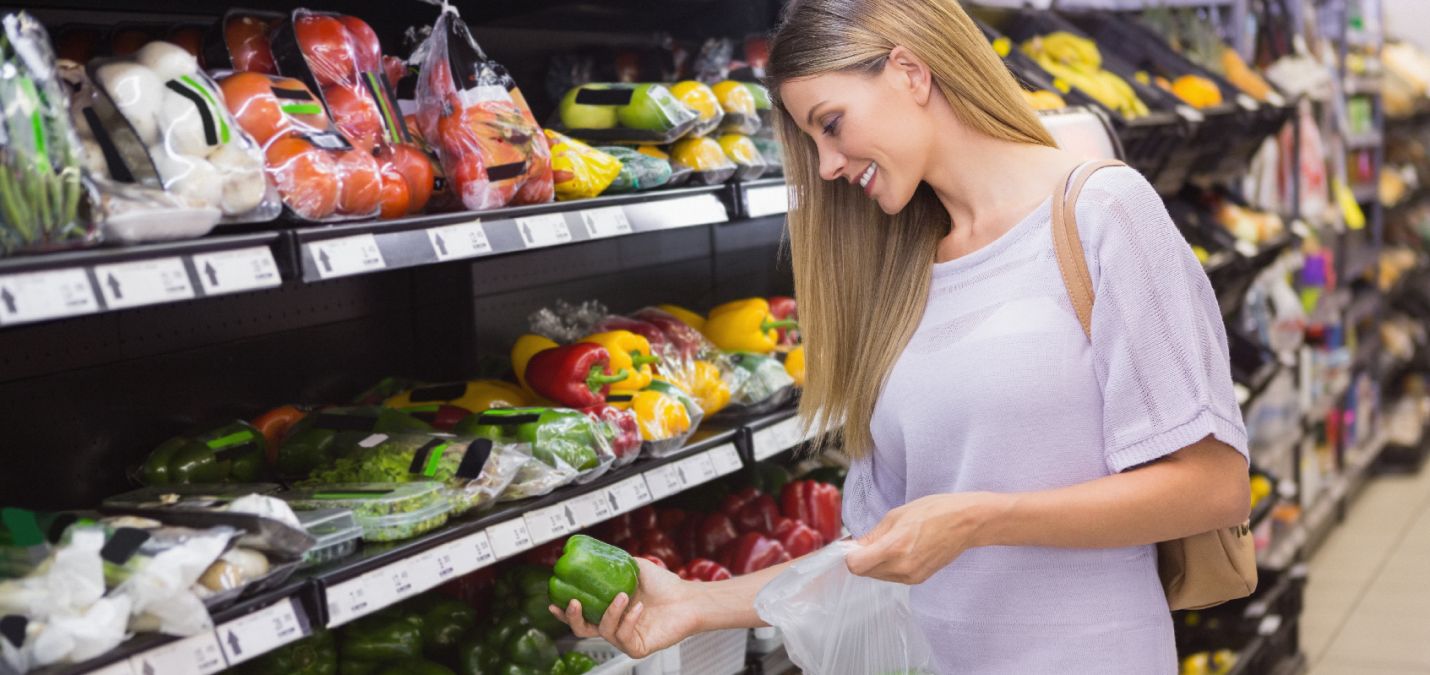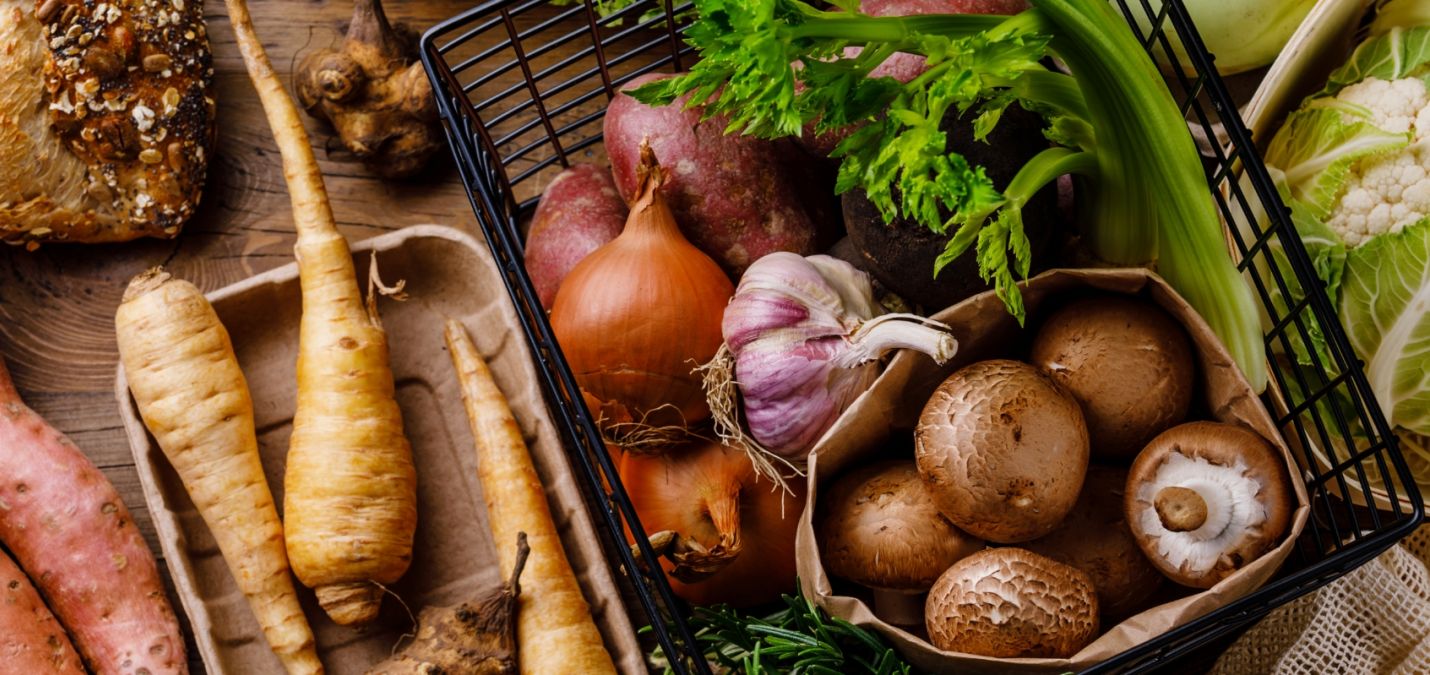

Ecological packaging extends the product shelf life
In the food industry, it is essential for the available goods to retain their taste, freshness and visual properties for as long as it is possible. It turns out that the packaging takes huge credit for it. What particular role do they have to play, and is it true that packages made of compostable materials prolong the life of the product better?
The role of food packaging
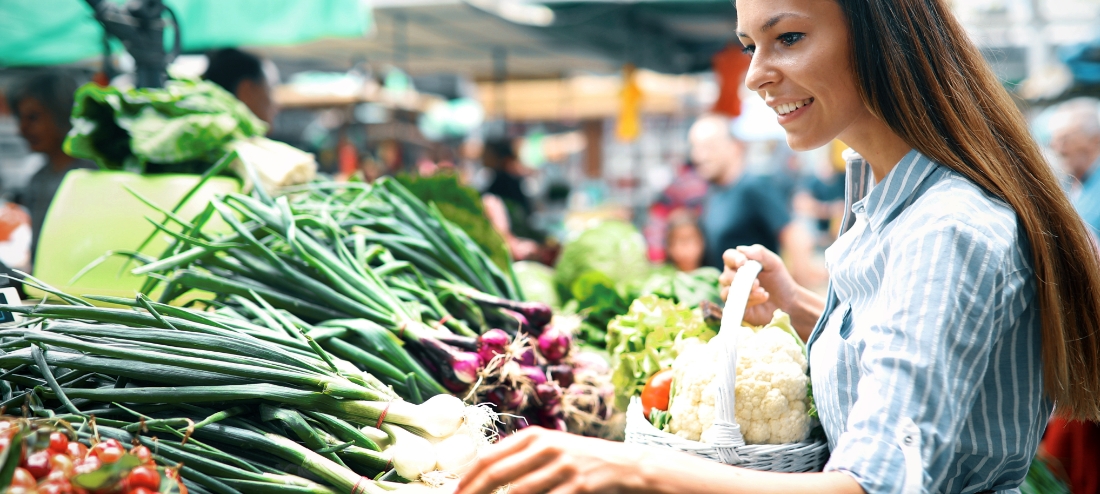
The shelf life of food products is described as the time by which the product can be stored without risk of losing sensory values or posing threat to human health1. It is influenced by various factors, mainly biological.
Since the items intended for consumption consist of proteins and sugars, they undergo natural processes, including rotting. The enzymes in the tissues of fruits and vegetables contribute to their maturation. To prevent this, they should be protected against factors that regulate this process, i.e. oxygen, carbon dioxide, etc.
Thus, food packaging must protect against:
- contact with atmospheric oxygen,
- quantitative losses,
- changes in functional characteristics (consistency, taste, shape, smell),
- the destructive effect of sunlight,
- microbial contamination (microbes).
Well-selected packaging means that food products reach stores being fresh and visually attractive.
Active packaging, i.e. novelties that can change a lot
Active products having the ability to change the conditions inside the packaging to extend the shelf life are an interesting trend on the packaging market
They are described by the PN-EN 13193: 2002 standard and are divided e.g. into absorbers, whose task is to remove harmful gases and emitters, which, as the name suggests, emit antimicrobial substances, for example. carbon dioxide or ethanol.
Various data show that the use of active packaging significantly extends the life of such food products as e.g. bread. We are talking about a difference of up to 40 days, taking for instance white bread, compared to the packaging made of polypropylene film2.
Still, this solution is not at all perfect. First of all, it generates waste. Therefore, it is worth looking for equivalents that will protect the food from deterioration and waste too early, but also will not harm the environment.
You must be familiar with lettuce and herbs sold in pots. They are additionally wrapped in foil cones, which protect the plant against mechanical damage and extend its life. For one of the producers of lettuce in pots, SILBO made such packaging using bio compostable material. After use, the casing can be thrown into a bio-waste container, then it decomposes within a few months without any negative impact on the environment and turns into a valuable fertilizer. Our compostable packaging also extended the freshness of lettuce by an average of several days, compared to plastic wrap.
We encourage you to perform a little experiment. Check how long a fresh lettuce of your choice will be kept in the cone (don't dump it right away!). And after using the packaging, make sure it can be made into compost. If you are curious and patient enough, you can also see for yourselves how it will decompose (the process can be accelerated by providing sufficiently high temperature and humid conditions).
In popular supermarkets, you can find lettuce in SILBO compostable packages. Pay attention to the compostability certificate sign, marking the origin of the raw materials from reliable sources and confirmation of printing with environmentally-neutral, water-based paints. They are placed on the bottom of the package, and this is how SILBO branded products are identified.
Packaging extending the shelf life of goods - scientific evidence

Researchers at the University of San Nicolas de los Garza have developed fruit packaging with a special edible coating. The aforementioned coating, abbreviated to EAC (Edible Active Coating), is based on pectin. In its natural environment, it is found in the cell walls of vegetables and fruits.
It was assumed that the packaging should be as environmentally friendly as possible, and at the same time it should ensure food durability. It turned out that such a box was perfect protection against the growth of microorganisms3.
Eco- friendly and cost-effective in terms of product durability
Other scientists have also come to interesting conclusions, including members of the recently completed EU-funded YPACK research project. It proves that compostable packaging made of by-products such as whey or almond shells are fantastic in terms of extending the life of packaged food. Natural origin biopolymers provide great protection against food spoilage. In contrast, other observations indicate that the combination of zinc oxide with oregano essential oil protects against bacterial contamination.
As Dr. José María Lagarón of the Spanish National Research Council, the coordinator of the YPACK project, says: We see that the future of recycled packaging materials is looking bright, as long as the packaging itself is functional. It has a chance to replace the existing solutions that are not environmentally friendly. The advantage of these materials is that they can be disposed of with other organic waste4.
At SILBO, we look closely at trends on the packaging market and are pleased that the path we have chosen corresponds to the latest scientific achievements. It turns out that the compostable packaging we offer5 not only benefits our planet, but also the entire supply chain: from production, to transport and logistics, to trade.
Food items displayed on shop shelves can be stored there longer than it would be in the case of packaging based on old technologies and made of plastics. And the end customer, when making a purchase, gains a few extra days for storing their groceries in their home pantry or refrigerator.
1 Quoted from: https://dietetycy.org.pl/sposoby-pakowania-zywnosci/
4 Quotation and data source: https://cordis.europa.eu/article/id/418495-how-to-prolong-shelf-life-and-avoid-food-waste/pl
5 Those that, when placed in a suitable environment or composting plant, decompose from polymers, plastics to CO2, and other components to biomass and soil (definition source: https://zapakuj.to/eko-cechy/materialy/kompostowalne/)
Zobacz również:
Most frequently read

About company
Silbo – packaging production experts with 20 years of experience in the industry. We support environmental protection on many levels, for example with creating new, biocompostable standards in the field of packaging production. These are the main values on which the activity of SILBO is based: focusing on innovation, ecology and quality issues.


Received certificates
